Related Research Articles
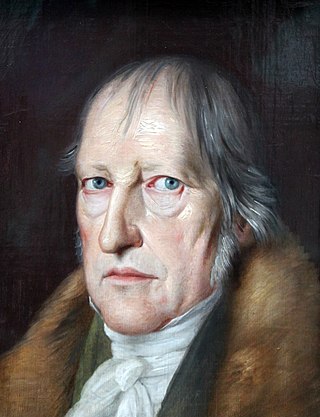
Georg Wilhelm Friedrich Hegel was a German philosopher and one of the most influential figures of German idealism and 19th-century philosophy. His influence extends across the entire range of contemporary philosophical topics, from metaphysical issues in epistemology and ontology, to political philosophy, the philosophy of history, philosophy of art, philosophy of religion, and the history of philosophy.
Historicism is an approach to explaining the existence of phenomena, especially social and cultural practices, by studying their history; that is, by studying the process by which they came about. The term is widely used in philosophy, anthropology, and sociology.

Idealism in philosophy, also known as philosophical idealism or metaphysical idealism, is the set of metaphysical perspectives asserting that, most fundamentally, reality is equivalent to mind, spirit, or consciousness; that reality is entirely a mental construct; or that ideas are the highest form of reality or have the greatest claim to being considered "real". The radical latter view is often first credited to the Ancient Greek philosopher Plato as part of a theory now known as Platonic idealism. Besides in Western philosophy, idealism also appears in some Indian philosophy, namely in Vedanta, one of the orthodox schools of Hindu philosophy, and in some streams of Buddhism.

Pantheism is the philosophical religious belief that reality, the universe and the cosmos are identical to divinity and a supreme being or entity. The physical universe is thus understood as an immanent deity, still expanding and creating, which has existed since the beginning of time. The term 'pantheist' designates one who holds both that everything constitutes a unity and that this unity is divine, consisting of an all-encompassing, manifested god or goddess. All astronomical objects are thence viewed as parts of a sole deity.
Dialectic, also known as the dialectical method, refers originally to dialogue between people holding different points of view about a subject, but wishing to arrive at the truth through reasoned argumentation. Dialectic resembles debate, but the concept excludes subjective elements such as emotional appeal and rhetoric. It has its origins in ancient philosophy and continued to be developed in the Middle Ages.

Friedrich Wilhelm Joseph Schelling, later von Schelling, was a German philosopher. Standard histories of philosophy make him the midpoint in the development of German idealism, situating him between Johann Gottlieb Fichte, his mentor in his early years, and Georg Wilhelm Friedrich Hegel, his one-time university roommate, early friend, and later rival. Interpreting Schelling's philosophy is regarded as difficult because of its evolving nature.

John Henry McDowell, FBA is a South African philosopher, formerly a fellow of University College, Oxford, and now university professor at the University of Pittsburgh. Although he has written on metaphysics, epistemology, ancient philosophy, nature, and meta-ethics, McDowell's most influential work has been in the philosophy of mind and philosophy of language. McDowell was one of three recipients of the 2010 Andrew W. Mellon Foundation's Distinguished Achievement Award, and is a Fellow of both the American Academy of Arts & Sciences and the British Academy.
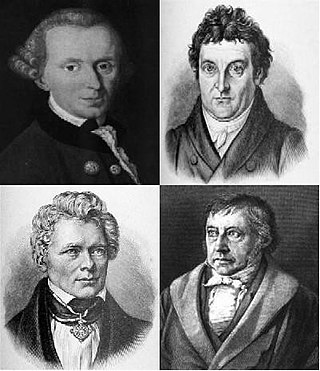
German idealism is a philosophical movement that emerged in Germany in the late 18th and early 19th centuries. It developed out of the work of Immanuel Kant in the 1780s and 1790s, and was closely linked both with Romanticism and the revolutionary politics of the Enlightenment.
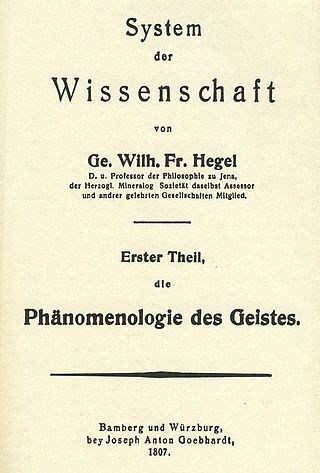
The Phenomenology of Spirit is the most widely-discussed philosophical work of Georg Wilhelm Friedrich Hegel; its German title can be translated as either The Phenomenology of Spirit or The Phenomenology of Mind. Hegel described the work, published in 1807, as an "exposition of the coming to be of knowledge". This is explicated through a necessary self-origination and dissolution of "the various shapes of spirit as stations on the way through which spirit becomes pure knowledge".

Bernard Joseph Francis Lonergan was a Canadian Jesuit priest, philosopher, and theologian, regarded by many as one of the most important thinkers of the 20th century.

John Niemeyer Findlay, usually cited as J. N. Findlay, was a South African philosopher.

Lectures on the History of Philosophy delivered by Georg Wilhelm Friedrich Hegel 1805-6, 1816-8, 1819, 1820, 1825–6, 1827–8, 1829–30, and 1831, just before he died in November of that year.
Dermot Moran is an Irish philosopher specialising in phenomenology and in medieval philosophy, and he is also active in the dialogue between analytic and continental philosophy. He is currently the inaugural holder of the Joseph Chair in Catholic Philosophy at Boston College. He is a member of the Royal Irish Academy and a founding editor of the International Journal of Philosophical Studies.

Georg Wilhelm Friedrich Hegel's Lectures on the Philosophy of Religion outlines his ideas on Christianity as a form of self-consciousness. They represent the final and in some ways the decisive element of his philosophical system. In light of his distinctive philosophical approach, using a method that is dialectical and historical, Hegel offers a radical reinterpretation of the meaning of Christianity and its characteristic doctrines. The approach taken in these lectures is to some extent prefigured in Hegel's first published book, The Phenomenology of Spirit (1807).
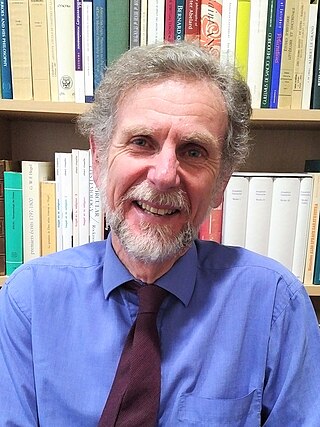
William James Desmond is an Irish philosopher who has written on ontology, metaphysics, ethics, and religion.
Marxist humanism is an international body of thought and political action rooted in a humanist interpretation of the works of Karl Marx. It is an investigation into "what human nature consists of and what sort of society would be most conducive to human thriving" from a critical perspective rooted in Marxist philosophy. Marxist humanists argue that Marx himself was concerned with investigating similar questions.

George Louis Kline was a philosopher, translator, and prominent American specialist in Russian and Soviet philosophy, author of more than 300 publications, including two monographs, six edited or co-edited anthologies, more than 165 published articles, book chapters, and encyclopedia entries, over 55 translations, and 75 reviews. The majority of his works are in English, but translations of some of them have appeared in Russian, German, French, Spanish, Portuguese, Polish, Serbo-Croatian, Korean and Japanese. He is particularly noted for his authoritative studies on Spinoza, Hegel, and Whitehead. He was President of the Hegel Society of America (1984–86), and President of the Metaphysical Society of America (1985–86). He has also made notable contributions to the study of Marx and the Marxist tradition. He attended Boston University for three years (1938–41), but his education was interrupted by service in the U.S. Army Air Corps during WW II, for which he was awarded the Distinguished Flying Cross.
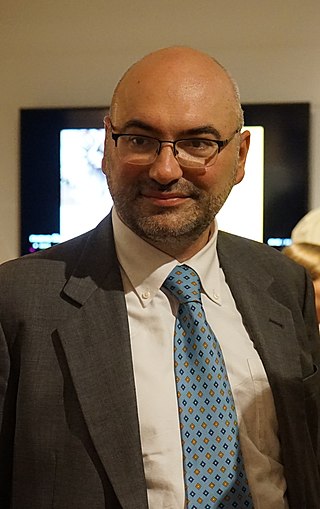
Paolo Diego Bubbio is an Italian philosopher and Associate Professor of Philosophy at Western Sydney University. He is known for his research on post-Kantian philosophy, philosophical hermeneutics and philosophy of religion. He is the editor of the "Contemporary Studies in Idealism" book series for Lexington Books.
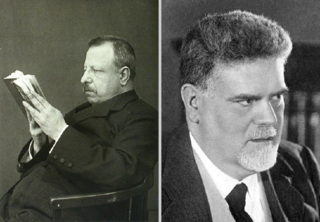
Italian idealism, born from interest in the German movement and particularly in Hegelian doctrine, developed in Italy starting from the spiritualism of the nineteenth-century Risorgimento tradition, and culminated in the first half of the twentieth century in its two greatest exponents: Benedetto Croce and Giovanni Gentile.
Ardis B. Collins is an American philosopher and Professor Emerita of Philosophy at Loyola University Chicago. She is known for her works on Hegel's philosophy and is Editor-in-chief of the Owl of Minerva.
References
- ↑ "Grier Receives Teaching Award".
- ↑ "Philip T. Grier". SUNY Press.
- ↑ Kiblinger, William P. "The Philosophy of Hegel as a Doctrine of the Concreteness of God and Humanity, Volume Two: The Doctrine of Humanity". NDPR.
- ↑ "Essays on Hegel's Philosophy of Subjective Spirit". NDPR.